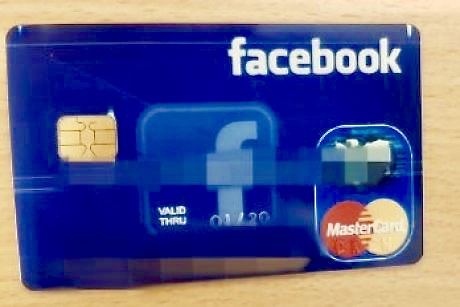Scam Artists
Scam artists engage in fraudulent or deceptive actions to defraud others. A common method scam artists use is Mass-Marketing Fraud.
Mass-Marketing Fraud
Mass marketing fraud (MMF) refers to any fraud scheme that uses mass-communication. This includes communication by the Internet, telephone, mail, or in-person. Mass-Marketing fraud includes schemes such as Romance Scams, Advanced Fee Fraud Schemes, Bank and Financial Account Schemes, and Investment Opportunity Schemes.
Romance Scams
Romance scams are the most frequently reported MMF in Western countries. According to the 2022 Federal Trade Commission report romance scams hit record highs with a staggering $1.3 billion reported losses.
Example
On March 13, 2023, Manhattan District Attorney Alvin L. Bragg, Jr., announced the indictment of Nelson Conne, a/k/a “Nelson Roth,” a/k/a “Justin Roth,” for stealing more than $1.8 million from five women through a series of romance and investment scams. Please see this newsletter for a discussion of how scammers lure their victims.
Advanced Fee Fraud
Advance fee frauds require a payment up-front before receiving any of the promised proceeds. The advance fee maybe a tax, commission or minor expense that the scammer promises to reimburse later. Advance fee frauds usually involve, lottery winnings, work at home schemes, or the offering of investments.
Facebook Lottery Scam
This lottery scam with a social media angle starts when the potential victim is contacted through their Facebook account by a scammer claiming to be a Facebook employee advising that they have won the $7.5 million “Facebook Lottery”. They are then instructed to pay a “fee” to release the money. Next, they are sent a Facebook-branded credit card. To activate the card an additional $7,500 is paid on top of the previous fees.

Supplied: Queensland Police Service
Work at Home Scam
The flexibility of working from home is very appealing. For this reason, many set good judgement aside to obtain it. However, this was not the case for Mr. Martin. Martin was looking to work from home to make it easier on his wife who has arthritis. He was contacted by two companies that appeared to have connections to a company he had applied to. Although eager to work from home, Martin says there were red flags that alarmed him, such as bad grammar in messages and a request for bank information.
Bank and Financial Account Schemes
Some mass-marketing fraud schemes involve phishing, vishing and impersonation to dupe potential victims into providing their financial account information. Once obtained, the perpetrator has access to accounts and can charge goods to victims accounts or siphon off their funds. Obtaining financial information also gives the perpetrator the means to commit identity fraud. Here’s a couple of examples:
Monetary Authority of Singapore warns of phishing scams targeting bank account info.
Scotland Police warns of vishing scams targeting banking information.
Investment Opportunity Schemes
Proponents of investment and money-making opportunities usually make their deals seem like a sure thing. However, usually the higher the reward, the higher the risk. Two types of investment opportunity scams are, Pump and Dump, and the Pyramid Scheme.
Pump and Dump
In the pump and dump scam, scammers spread fraudulent information causing dramatic price increases—the pump. Next, stock holdings are immediately sold—the dump. This results in profits before the stock price returns to its usual level. Ultimately, stock buyers unaware of the fraudulent information become victims of the scheme once the price falls.
Pyramid Scheme
According to the U.S. Securities and Exchange Commissions, in the classic pyramid scheme, participants attempt to make money solely by recruiting new participants into the program. The hallmark of these schemes is the promise of sky-high returns in a short period of time. Related to the pyramid scheme is the ponzi scheme. An example of a cryptocurrency ponzi scheme can be found here.
ICO Pump and Dump
The Security Exchange Commissions (SEC) issued a warning in 2017 regarding companies that promote an upcoming Initial Coin Offering (ICO) to boost the price of their shares (the pump) and cash out (the dump) when victims buy in. The SEC issued trading suspensions on the common stock of First Bitcoin Capital Corp, CIAO Group, Strategic Global, and Sunshine Capital for claims made regarding their investments in ICOs or touted coin/token related news.
Psychology of Scams
The assumption might be that a person is susceptible to scams because they know very little about the content of the scam. However, this study done in the UK indicates that scam victims often have a better than average knowledge in the area of the scam content. For example, it seems that people who have experience with playing legitimate lotteries are more likely to fall for a scam in this area.
What You Can Do
The Justice Department recommends these basic steps to reduce the risk of falling victim to Mass-Marketing Fraud:
- Remove your name from solicitation lists. Additionally, you may opt out of direct mail and email offers at www.dmachoice.org credit card offers at www.optoutprescreen.com or (888) 567-8688, and online cookie collecting at www.networkadvertising.org;
- Shred suspicious mail and do not respond to junk mail or emails from strangers;
- Do not participate in or respond to claims that you have won a foreign lottery. Particularly any lottery or sweepstakes that you do not remember entering. Participating in a foreign lottery is against the law.;
- Get all offers in writing and independently verify credentials; and
- Don’t deposit checks sent by companies that claim the check is for fees or taxes on lottery winnings or an inheritance from a long-lost relative. Before the bank discovers the check is counterfeit, the fraudster will request that you return a portion of the money via wire transfer.
In conclusion, if you have become a victim of a scam artist via Mass-Marketing Fraud, contact your local law enforcement office to file a police report. You can also file a report with your local District Attorney’s Office, your state’s Attorney General’s Office and with the FBI.

